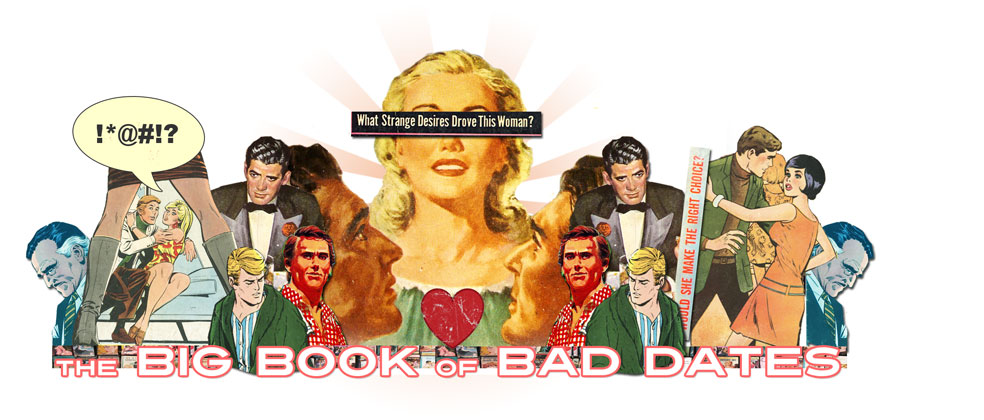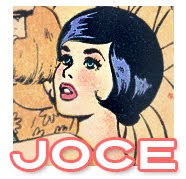She is called Sunny. Her real name, matronly, monotonous
Martha, was only used very briefly in her early life. Very briefly until one
day, as she sat glowering and gloomy in her high chair, silently passing
judgment on the creamed corn and mashed carrots being served to her on a thick
rubbery spoon, her mother observed, not unkindly, “well, aren’t you just a
cloudy day! We should call you Sunny.” And as those things so often go, they
did.
As a child Sunny learned that it’s a lot of trouble to be
gloomy. People were forever asking her what was wrong and trying to help her,
solve her problems, cheer her up. She found them pandering, patronizing,
annoying. She wished to be left alone, to color, to read, to play with her
dolls, and didn’t need some meddlesome adult suggesting that she go play with
the other kids, or sing along, to pull her sleeping bag up to her chin and
share her deepest giggly secrets like the girls did in the Young Adult books
she bought through the Troll Book Order. Eventually she found it was easier to feign cheerfulness, to
invest in a little smile and force a little laugh than it was to maneuver
through awkward probing questions from concerned teachers, parents, strangers.
Though she never lost the murky shadows that tainted her outlook as she got
older she forced the darkness inside and on the outside she became, well,
Sunny.
Adolescence was brutal. She got giant breasts nearly
overnight and her hips bloomed, her hair was limp and dry from an ill-timed
perm and the pool. She stayed short as the boys got taller, smelling of damp
socks and drugstore cologne, they stood too close and made coarse observations
about her boobs. She had a recurring nightmare about getting her period in
class; leaving a dark sticky mess on the plastic chair, blood seeping through
her knit shorts. She’d watched it happen to Carol Ann, in white jeans of all
things! A big red spot right on the seam. Carol Ann was never going to get a
boyfriend, ever.
As terrible as the boys were, the girls were worse, the
girls were mean. They made it crystal clear that Sunny never had the right hair,
or clothes and she was still riding her old pink banana seat bike to school,
embarrassing! Her family didn’t go camping on the weekends up at Warm Lake or
to the State Fair in the summer. Sunny had to do chores, like weeding, on the
weekends and in the summer they visited her decrepit grandmother at her farm in
Indiana. While the other kids were tubing down the river, Sunny had to take
swimming lessons at the Y and wear a brown (brown?!) hand-me-down swimsuit from
her older cousin. The butt of it was all fuzzy from sitting on the rough
concrete pool edge while her pregnant swim instructor, pubic hair fringing the
crotch of her blue Speedo, barked orders. Instead of listening, Sunny smiled
her half smile and read and re-read the sign behind the teacher: “This is our
ool, notice there is no “p” in it. Please keep it that way.“ She did pee in it
of course, it was a lot of trouble to get out of the pool, tromp to the
changing room where the tile floor was cold and wet, pull your sticky swimsuit
down and then, finally, pee, hot and yellow, like a ray of sun.
Inside Sunny was sad and angry. She thought of her sadness
and anger like a black sludge all through her body. Inside, where others had plump,
juicy tomato-like organs, precious ivory bones, licorice whip veins, Sunny had
the La Brea tar pits. Every slight, every insecurity, every sorrow and loss, it
all caught in her bitter sludge and stayed there, perfectly preserved, like a
baby dinosaur.
So, on the outside, Sunny made herself even sunnier. She put
her hair in pigtails, sported polka dots, flirted with garish broomstick skirts
and billowy peasant blouses. She wore railroad stripe overalls, fluorescent
pink sneakers with ruffly socks. She had a wry sense of humor and she honed it
to a sharp metallic point. She became self-deprecating, ready, willing, happy
to call attention to her every fault and weakness, she’d rather skewer herself
before someone else had the chance.
At 15 she further embraced her fake, sassy brightness by
dying her hair a brassy red. And, she kept dying it, all through her 20s and
30s. All through college and her first job and second job and graduate school
she used L’oreal Excellence Crème Red Penny hair dye. Eventually, she toned
down her clothes, shifted to blacks and neutrals as she aged, moved away from
polka dots and overalls. She toned down her humor, too, she was still funny,
just not viciously, desperately so. But she always kept the red hair.
By 38 she realized that she was mostly a failure. She had
spent the past 10 years in an unsatisfying, low paying job, had few successful
friendships, no successful relationships. Her parents were dead. She and her
sister no longer spoke. Even her dog seemed mostly disinterested in her, she
could get a slow wag from him when she filled his food bowl, but he always
walked slowly back to his bed under the window and sighed heavily after he ate.
The grey hair at her temples resisted the hair dye so she
stopped using it. Slowly her hair returned to its natural field mouse color.
Sunny had inherited the unremarkable features and practical, solid body of her
Indiana farm grandmother. She was round and womanly with strong shoulders in an
age that appreciated slightness and slim hips and delicate wishbone collarbones.
Her breasts might have been magnificent on someone taller, if they sat a little
higher, if they weren’t matched by her poochy middle, stocky thighs and broad
shoulders. She had nice full lips and small hands, but, Sunny, always her
greatest critic, knew it wasn’t enough to have pretty lips and hands.
Sunny at 39 went about life in a sloggy moody fog, tooth brushing,
dish washing, laundry, TV, bills, dog walks, though she still answered the
phone cheerfully at work, “Thompson Brothers Production Services, this is
Sunny, how can I help you?” Her depression morphed into a perpetual melancholy
that you could see at the corners of her eyes, if you looked close, into her
soul. But, nobody had ever tried to look into Sunny’s soul. Maybe once or twice
someone had, when she was in college perhaps, but she had quickly turned
away.
As far as Sunny was concerned she probably didn’t even have
a soul, any spark of real happiness she had slowly suffocated, crushed with
self-imposed misery, for three decades. Her tar pit was now a Weber kettle
grill, burnt out, full of charcoal ash and charred bits of old grey meat.
Evening work event. Sunny hated evening work events,
schmoozing with clients, people who were better than her, people who were
well-adjusted, married with kids, in good jobs, jobs paid them enough money
that they could be schmoozed by Sunny, a disingenuously cheerful, middle-aged,
moderately overweight depressive. Wasn’t it enough to just go to work? She
tried to get someone to go with her but her “friends” were mostly just
reluctant acquaintances. One guy, David, she’d gone out with him a couple of
times after they met online, told her he couldn’t go because he was having
dental surgery the following week. You can’t have one drink because you’re
having dental surgery NEXT WEEK? And, Ryan, Ryan told her he had “worked out
pretty hard yesterday,” so he wasn’t up for it.
So, Sunny went by herself. The restaurant was close to her
house and she sometimes went there in the evening, to sit at the bar for a
burger and a beer. She knew the
bartender Richard, by name, he was always pretty nice to her though she thought
of him as a loser: still a bartender at his age! He was probably 45, but he looked 47 or 48. He was short, maybe as short as Sunny, swarthy with dark hair that seemed
always in need of a cut. Richard was ill-proportioned: long torso, short legs,
short arms and a broad chest. He always wore a black t-shirt stretched over his
potbelly and he wore pants that were too long and frayed at the bottom.
Sunny helped herself to a glass of wine. There were several
tables set up with trays of cheese and crackers and vegetables for dipping.
Sunny never ate at these events. She didn’t like to eat in front of other
people. She forced herself to have
a conversation with Morty, who was only there for the free food (that’s what he
told her). Morty stood too close and spit little bits of food at her because he
was always talking with his mouth full. Sunny drank her glass of wine and then
another. Luckily the culture of these events was that everybody always drank
too much. Sunny was no exception. If she was going to stand here, feet swollen
in her cheap pumps, talking to Morty, and then D.J. and then Cal, none of whom
she liked, and who didn’t really like her either, though they probably
appreciated her pleasant phone manner, she was going to drink too much.
Guaranteed.
For most of the evening Sunny stood with her back to the
wall and watched as her co-workers, their clients, their spouses, came and
went. Richard came through a couple of times with more booze, more ice. He
wiped up the crumbs from the crackers and picked up wadded up napkins and
toothpicks off the floor. She would have to stay until the end, to help with
clean up, to pack up the promotional material, the pens, the note pads, the
brochures that nobody every looked at anyway, but that were displayed on a
table by the door. That was part
of her job. And so she waited, shifting her weight from one uncomfortable foot,
to the other, and had more wine, and thought gloomy, negative, depressing thoughts.
Finally, it seemed as though the last drunk hold outs had stumbled
out the door. As she pushed her back from the wall, Sunny realized she had
probably had too much to drink and wondered if she should walk home instead of
driving. But, it wasn’t that far, and her feet really hurt. Richard came in and
started to tidy up; he smiled at her. She smiled back and then quickly looked
down, trying not to be too friendly, to focus on her task. He walked over
closer and picked up a half-empty bottle of wine, “have a drink with me?” He
pulled out a chair and Sunny plopped down then immediately wished she hadn’t
plopped, but lowered herself more gracefully. She let out a sigh as he poured
her a drink and one for himself.
And then Richard looked at
her and caught her gaze, and before she looked back down at her drink Sunny
noticed that he had nice gentle eyes; she hadn’t really noticed his eyes before.
She looked up again and as she looked into his eyes she could see him looking
into hers, and then, weirdly, she felt him looking right down, right into her
soul, right into her tar pit and her barbeque.
“I love you Sunny. Marry
me. I’m serious…marry me.” And this time, Sunny didn’t look away.







No comments:
Post a Comment